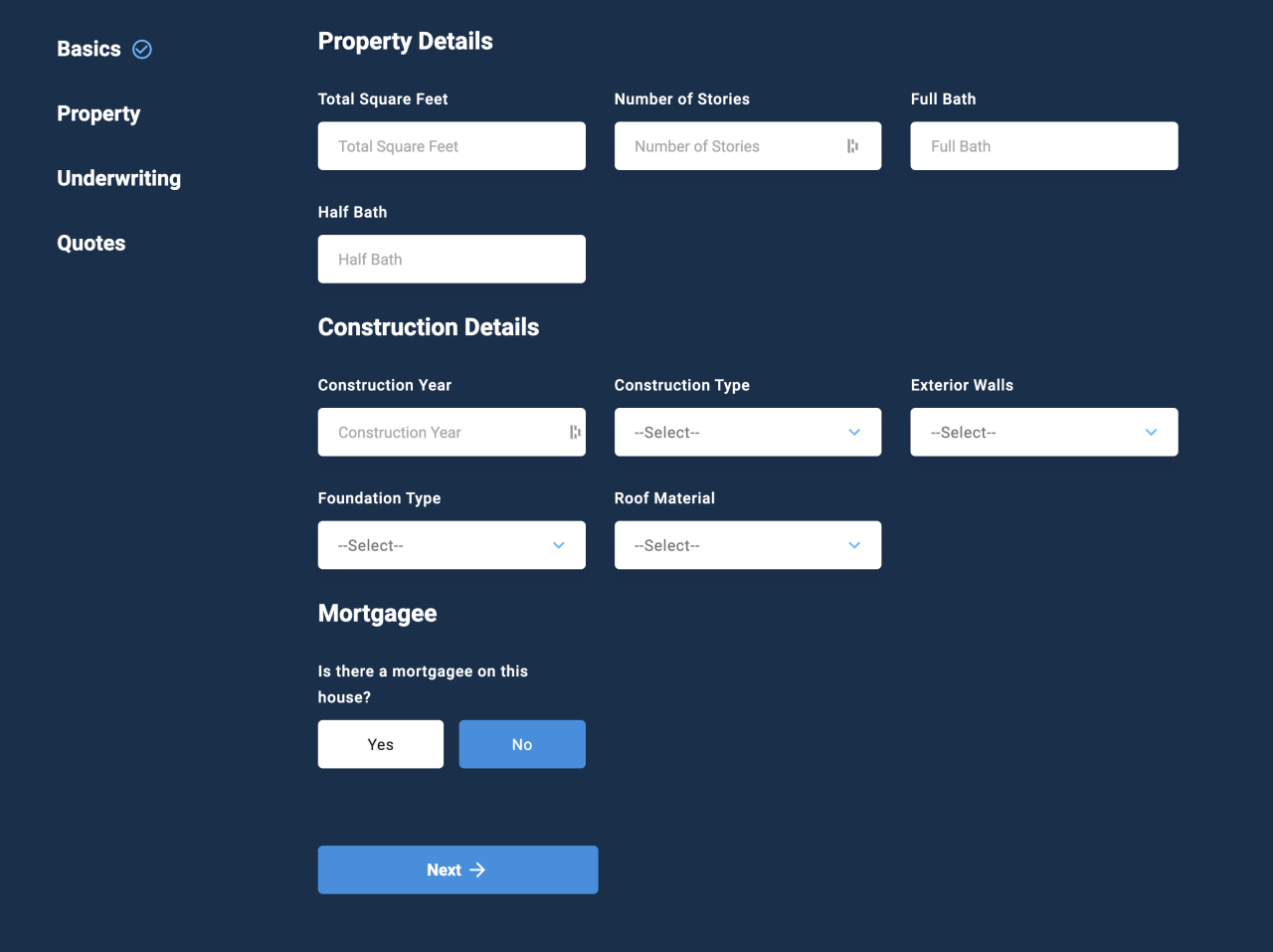Unlocking the Secrets to Getting the Best Homeowners Insurance Quote
Navigating the world of homeowners insurance can feel like deciphering a complex financial code. It’s a critical investment, shielding you from unforeseen events that could leave you financially devastated. But with a multitude of insurers, coverage options, and ever-changing market dynamics, finding the perfect policy and the best quote can feel daunting. This guide demystifies the process, providing a comprehensive roadmap to understanding homeowners insurance, navigating its intricacies, and ultimately securing the best quote for your unique needs. From understanding the basics of coverage to uncovering hidden factors that influence pricing, we’ll equip you with the knowledge to make informed decisions and protect your most valuable asset – your home. Introduction to Homeowners Insurance Homeowners insurance is a vital financial safety net for property owners. It provides coverage against various risks, safeguarding your financial well-being in the event of unforeseen circumstances. It’s a crucial investment that protects your biggest asset, your home, from potential financial devastation. Common Misconceptions Many homeowners harbor misconceptions about insurance coverage. It’s essential to understand the true nature of homeowners insurance to ensure you have adequate protection. Misconception: Homeowners insurance covers everything. Reality: Homeowners insurance policies have limitations. Specific perils, such as floods, earthquakes, or acts of war, are often excluded. It’s crucial to understand the policy’s terms and conditions to ensure you have the necessary coverage for your unique needs. Misconception: Renters don’t need homeowners insurance. Reality: Renters insurance is crucial. It protects your personal belongings and provides liability coverage in case of accidents or injuries within your rented property. Types of Coverage Homeowners insurance policies typically include various types of coverage to address different risks: Dwelling Coverage: This covers the physical structure of your home, including the foundation, walls, roof, and attached structures. It protects against damages from perils such as fire, windstorms, and vandalism. Personal Property Coverage: This protects your belongings, including furniture, appliances, clothing, and electronics. It covers losses due to covered perils, but may have limits on specific items. Liability Coverage: This protects you from financial liability if someone is injured on your property or if you accidentally damage someone else’s property. It can cover medical expenses, legal fees, and judgments. Additional Living Expenses: This covers the costs of temporary housing and living expenses if your home becomes uninhabitable due to a covered event. It can help with expenses such as hotel stays, meals, and transportation. Key Components of a Homeowners Insurance Policy Homeowners insurance is a crucial financial safeguard for property owners, protecting against various risks that could lead to significant financial losses. Understanding the key components of a homeowners insurance policy is essential for making informed decisions about coverage and ensuring adequate protection. Coverage Sections A standard homeowners insurance policy typically includes four primary coverage sections: dwelling, personal property, liability, and additional living expenses. These sections provide protection for different aspects of your home and belongings. Dwelling Coverage: This section covers the physical structure of your home, including the walls, roof, foundation, and attached structures like a garage or porch. It protects against damage caused by perils such as fire, windstorms, hail, and vandalism. Personal Property Coverage: This section covers your belongings inside your home, such as furniture, electronics, clothing, and jewelry. It typically provides coverage for theft, fire, and other covered perils. Liability Coverage: This section protects you from financial losses if someone is injured on your property or if you are held liable for property damage caused by you or a member of your household. It provides coverage for legal defense costs and settlements. Additional Living Expenses: This section covers expenses incurred if you are unable to live in your home due to a covered event. It provides reimbursement for temporary housing, meals, and other essential expenses. Deductibles and Policy Limits Understanding deductibles and policy limits is essential for determining your out-of-pocket costs in the event of a claim. Deductibles: A deductible is the amount you are responsible for paying out of pocket before your insurance coverage kicks in. A higher deductible typically results in lower premiums, while a lower deductible leads to higher premiums. Policy Limits: Policy limits represent the maximum amount your insurance company will pay for a covered loss. It’s crucial to ensure that your policy limits are sufficient to cover the full value of your home and belongings. Endorsements and Riders Endorsements and riders are optional add-ons to your homeowners insurance policy that provide additional coverage for specific situations or items. Endorsements: Endorsements are additions to your policy that modify or expand coverage. They can be used to add coverage for specific items, such as valuable jewelry or art, or to increase liability limits. Riders: Riders are separate policies that provide coverage for specific risks not included in your standard homeowners insurance policy. For example, a flood rider can provide coverage for damage caused by flooding, a peril typically not covered by standard homeowners insurance. Factors Influencing Homeowners Insurance Premiums Homeowners insurance premiums are calculated based on a variety of factors, ensuring that the cost reflects the individual risks associated with each property. Understanding these factors can help homeowners make informed decisions to potentially lower their premiums. Location The location of a home significantly influences insurance premiums. This is due to the potential for natural disasters, crime rates, and other risks associated with the area. For example, homes in coastal areas are more susceptible to hurricanes, resulting in higher premiums compared to homes in inland locations. Additionally, areas with high crime rates may have higher premiums due to the increased risk of theft and vandalism. Home Value The value of a home is a primary factor in determining premiums. Insurance companies assess the cost to rebuild or repair a home in case of damage, and the higher the value, the higher the premium. This is because the insurance company assumes a greater financial responsibility to cover potential losses. Age of the Home Older homes often require more maintenance and are more susceptible to wear and tear. This can increase the likelihood of damage, leading to higher premiums. Newer homes with modern construction and building codes generally have lower premiums due to their inherent safety and durability. Coverage Limits The amount of coverage chosen by the homeowner also impacts premiums. Higher coverage limits, which provide more financial protection in case of damage or loss, result in higher premiums. Homeowners should carefully consider their coverage needs and choose limits that align with their financial situation and the value of their property. Insurance Company Pricing Strategies Insurance companies employ different pricing strategies, often based on their risk assessment models and the market they operate in. Some companies may offer lower premiums for specific risk profiles, such as homeowners with excellent credit scores or those who have implemented home security measures. Others may focus on offering broader coverage options, potentially leading to higher premiums. Tips for Reducing Homeowners Insurance Premiums Improve Home Security: Installing security systems, such as alarms and motion sensors, can demonstrate a lower risk to insurance companies, potentially leading to lower premiums. Upgrade Home Features: Upgrading features like replacing older roofs or installing fire-resistant materials can reduce the likelihood of damage and potentially lower premiums. Maintain Good Credit: Insurance companies may consider credit scores as a factor in pricing, and maintaining a good credit history can potentially result in lower premiums. Bundle Policies: Combining multiple insurance policies, such as homeowners and auto insurance, with the same company can often lead to discounts. Shop Around: Comparing quotes from multiple insurance companies can help homeowners find the best rates and coverage options for their specific needs. Common Homeowner Risks and Coverage Considerations Homeowners insurance is designed to protect your property and financial well-being in the event of unexpected events. While standard policies cover a range of common perils, understanding the specific risks your home faces and the coverage options available is crucial for comprehensive protection. Common Perils Covered by Standard Policies Standard homeowners insurance policies typically cover a range of perils, providing financial protection against losses caused by these events. Fire: This covers damage to your home and belongings caused by fire, including smoke and soot. … Read more


